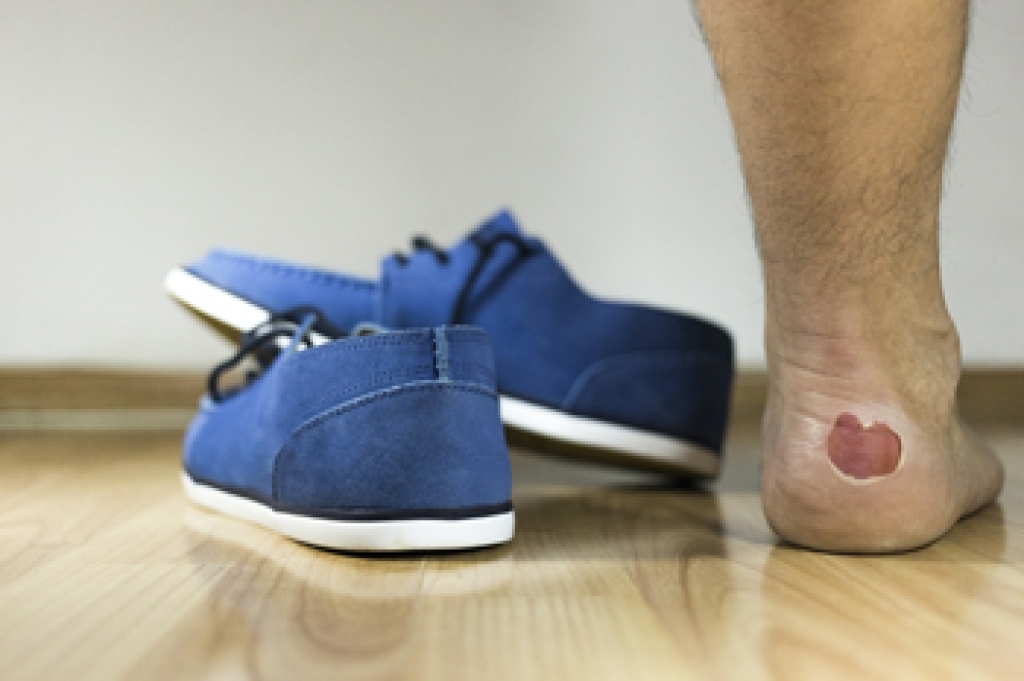
Blisters typically form as a natural response to a skin injury, often emerging on the feet due to friction from footwear. They create a protective fluid-filled sac that acts like a bandage, shielding the injured skin and facilitating the healing process. However, when the blister's protective covering breaks, it becomes susceptible to infection. An infected foot blister can result in specific symptoms, including the presence of pus and a warm sensation upon touch. Neglecting an infected blister also can result in a potentially dangerous bacterial skin infection. Often painful infections originating from a blister, whether bacterial, viral, or fungal, may spread to other parts of the body. This may potentially lead to sepsis, which is a life threatening bloodstream infection. Recognizing the signs of an infected foot blister includes checking for warmth, an unpleasant odor, pus discharge, or pain and swelling that surrounds the blister. Bleeding when touched or a lack of healing progress are also concerning indicators. If you have a foot blister and you suspect it is infected, it is strongly suggested that you make an appointment with a podiatrist to have it medically evaluated and treated.
Blisters may appear as a single bubble or in a cluster. They can cause a lot of pain and may be filled with pus, blood, or watery serum. If your feet are hurting, contact Jordan Baker, DPM of Best Foot Forward Surgical Podiatry. Our doctor can provide the care you need to keep you pain-free and on your feet.
Foot Blisters
Foot blisters are often the result of friction. This happens due to the constant rubbing from shoes, which can lead to pain.
What Are Foot Blisters?
A foot blister is a small fluid-filled pocket that forms on the upper-most layer of the skin. Blisters are filled with clear fluid and can lead to blood drainage or pus if the area becomes infected.
Symptoms
(Blister symptoms may vary depending on what is causing them)
- Bubble of skin filled with fluid
- Redness
- Moderate to severe pain
- Itching
Prevention & Treatment
In order to prevent blisters, you should be sure to wear comfortable shoes with socks that cushion your feet and absorb sweat. Breaking a blister open may increase your chances of developing an infection. However, if your blister breaks, you should wash the area with soap and water immediately and then apply a bandage to the affected area. If your blisters cause severe pain it is important that you call your podiatrist right away.
If you have any questions, please feel free to contact our office located in Florence, SC . We offer the newest diagnostic and treatment technologies for all your foot care needs.
